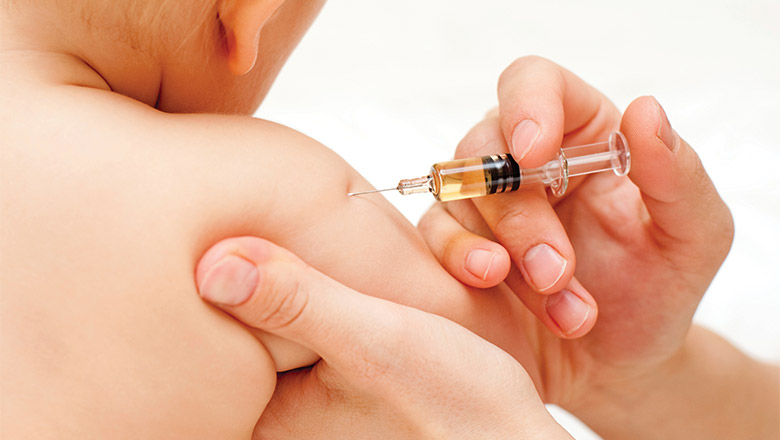Search
Research
Neonatal and infant mortality after maternal influenza and pertussis vaccination: Probabilistically linked cohort studyMaternal influenza and pertussis vaccination is an important strategy to reduce morbidity and mortality in infants. Previous vaccine safety studies have mostly focused on the association between maternal vaccination and fetal death.
Research
Optimising a 6-plex tetanus-diphtheria-pertussis fluorescent bead-based immunoassaySmall volume assays are required for large-scale research studies and in particular paediatric trials, where multiple measures are required from a single sample. Fluorescent bead-based technology (Bioplex/Luminex) allows high through-put and simultaneous quantification of multiple analytes in a single test. This technology uses sets of microspheres, each with a unique spectral address that can be coated with a different antigen of interest.
Research
Acellular Pertussis Vaccine Given in the Week After Birth Does Not Impair Antibody Responses to Later Childhood DosesA birth acellular pertussis vaccine may be a valuable alternative for immunity against infant pertussis when a pregnancy pertussis vaccine has not been administered. We assessed whether a birth dose may impair immunoglobulin G (IgG) responses to childhood pertussis boosters.
Research
Immunogenicity and Safety of a 2 + 1 DTPa Priming Schedule in Australian Infants and the Impact of Maternally Derived Antibodies on Pertussis Antibody Responses up to 4 Years of AgeWe assessed the impact of maternally derived pertussis antibodies on infant responses to a 2 + 1 vaccine schedule (6 weeks, 12 weeks, and 12 months). Infants with baseline antibodies showed lower IgG responses following the primary vaccination series, but this did not impair booster responses at 4 years of age.
Research
An observational study of antibody responses to a primary or subsequent pertussis booster vaccination in Australian healthcare workersAdult pertussis vaccination is increasingly recommended to control pertussis in the community. However, there is little data on the duration and kinetics of immunity to pertussis boosters in adults. We compared IgG responses to vaccination with a tetanus, low-dose diphtheria, low-dose acellular pertussis (Tdap) booster at 1 week, 1 month and 1 year post-vaccination in whole-cell (wP)-primed Australian paediatric healthcare workers who had received an adult Tdap booster 5-12 years previously, to those who received their first Tdap booster. Tdap vaccination was well tolerated in both groups.

News & Events
Extra whooping cough shot to protect your bubToddlers will now get an additional whooping cough vaccine to protect them against the potentially deadly disease.

News & Events
Extra whooping cough shots to protect bubsAn extra whooping cough vaccination for babies comes as a result of work by researchers at the Wesfarmers Centre of Vaccines and Infectious Diseases.
Research
VaccinationVaccination is the injection of an inactivated bacteria or virus into the body. This simulated infection allows an individual's immune system to develop an adaptive immunity for protection against that type of illness. When a sufficiently large percentage of a population has been vaccinated, this results in herd immunity.
Research
Immune impacts of infant whole-cell and acellular pertussis vaccination on co-administered vaccinesWe compared the effect of a heterologous wP/aP/aP primary series (hereafter mixed wP/aP) versus a homologous aP/aP/aP primary schedule (hereafter aP-only) on antibody responses to co-administered vaccine antigens in infants and toddlers.
Research
Infant Whole-Cell Versus Acellular Pertussis Vaccination in 1997 to 1999 and Risk of Childhood Hospitalization for Food-Induced Anaphylaxis: Linked Administrative Databases Cohort StudyEvidence suggests that children who had received an initial priming dose of whole-cell pertussis (wP) vaccine, rather than acellular pertussis (aP) vaccine, had a lower risk of developing IgE-mediated food allergy, the most common cause of anaphylaxis-related hospital presentations of childhood.
